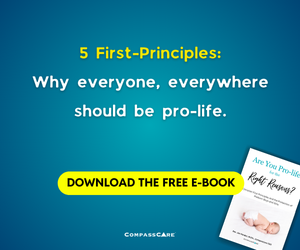A potential coronavirus vaccine being tested in Australia could be the ethical alternative that pro-life advocates have been asking for.
So far, the vaccine from Oxford University/AstraZeneca has been considered the most promising for COVID-19, but researchers are using cells from aborted babies in their testing – a huge ethical concern for pro-lifers.
The answer may be with another vaccine being developed by the University of Queensland and Australian biotech company CSL Limited, according to The Catholic Leader.
Melbourne Archbishop Peter A. Comensoli recently highlighted the project because researchers are not using cells from aborted babies in their work.
“It is our understanding that the [University of Queensland] project does not use cell lines taken from an aborted child but uses a human ovarian cell line,” Comensoli wrote Monday in a letter to Catholics. “For this reason, it appears to be an ethically acceptable option.”
The researchers said the pre-clinical testing was a success; they now are recruiting volunteers for human trials, according to the report. If all goes well, the vaccine could be available by mid-2021.
Click here to sign up for pro-life news alerts from LifeNews.com
Comensoli is one of many Catholic and pro-life leaders who have been urging governments to invest in ethical coronavirus vaccine projects.
“We have to be mindful of how vaccines are developed and discourage research that fails to respect the dignity of unborn human life,” he wrote. “Some vaccines have been and are being developed using cell lines of tissue derived from abortions, sometimes performed decades ago.
“As people of faith concerned for the common good, we cannot accept abortion, and we advocate for vaccines to be produced without reliance on human tissue derived from an abortion,” the archbishop continued.
He encouraged people to seek out vaccines that are not developed with cells from babies killed in abortions. However, he noted that Catholic bishops “accept that the use of an ethically compromised vaccine is acceptable if no other option is available, in order to protect lives.”
But in the case of the coronavirus, pro-lifers may not have to compromise.
According to the Charlotte Lozier Institute, 17 research groups are conducting ethical coronavirus vaccine experiments while five are not. The five using cells from aborted babies in their research include researchers with the University of Oxford, Johnson & Johnson and the University of Pittsburgh.
The Oxford research is considered to be one of the most promising for a COVID-19 vaccine. The researchers predict it could be available by early 2021.
In May, U.S. Catholic Archbishop Joseph Naumann also urged pro-life advocates to speak out against the unethical use of cells from aborted babies in the creation of a coronavirus vaccine.
Speaking with EWTN Pro-Life Weekly, Naumann said now is the time for Catholics and other pro-lifers to demand ethically developed vaccines.
“I think all we need really is for our pharmaceutical companies to realize that this is offensive to a large number of Americans and give them the encouragement, give our government the encouragement, to make sure these vaccines are not morally compromised in any way,” he said.
Many have been raising their voices in support of an ethically-developed vaccine, but one Canadian Catholic leader took his advocacy even further. According to the Catholic News Agency, the archbishop recently donated thousands of dollars to support an ethical vaccine research project at the University of British Columbia.
Vaccine producers are listening to pro-lifers’ concerns. Earlier this month, the company Sanofi-Pasteur announced plans to produce a new, ethically-developed polio vaccine. The project will replace an older polio vaccine that was developed with cells from an aborted baby, according to the Catholic News Agency. Sanofi-Pasteur is one of the largest vaccine production companies in the world.
Ethical alternatives to cells from aborted babies are available, including pluripotent stem cells and tissue from placentas, umbilical cords and amniotic fluid. In 2018, the Trump administration created a $20 million grant to invest in these ethical research alternatives.








